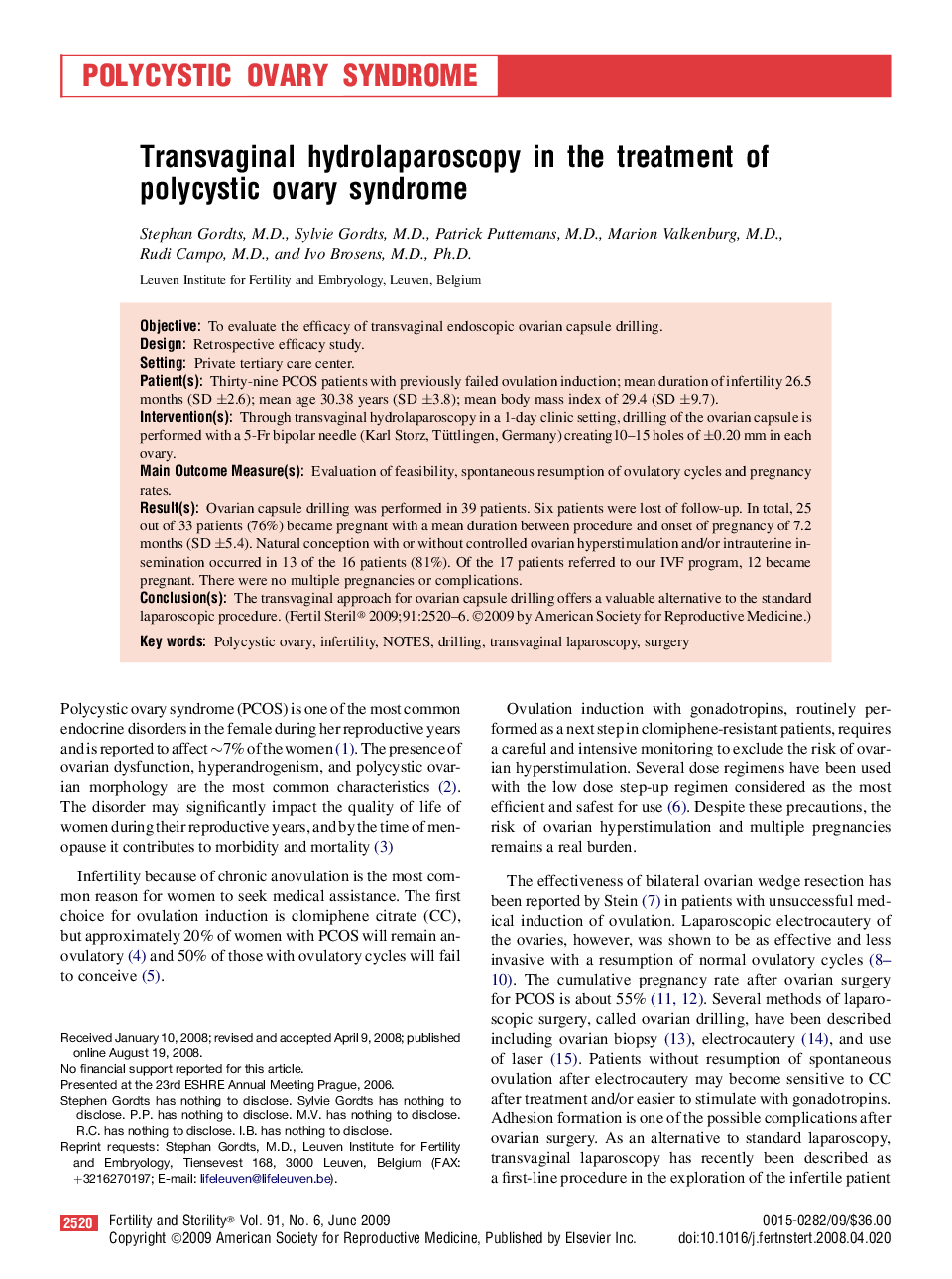| Article ID | Journal | Published Year | Pages | File Type |
|---|---|---|---|---|
| 3934270 | Fertility and Sterility | 2009 | 7 Pages |
ObjectiveTo evaluate the efficacy of transvaginal endoscopic ovarian capsule drilling.DesignRetrospective efficacy study.SettingPrivate tertiary care center.Patient(s)Thirty-nine PCOS patients with previously failed ovulation induction; mean duration of infertility 26.5 months (SD ±2.6); mean age 30.38 years (SD ±3.8); mean body mass index of 29.4 (SD ±9.7).Intervention(s)Through transvaginal hydrolaparoscopy in a 1-day clinic setting, drilling of the ovarian capsule is performed with a 5-Fr bipolar needle (Karl Storz, Tüttlingen, Germany) creating10–15 holes of ±0.20 mm in each ovary.Main Outcome Measure(s)Evaluation of feasibility, spontaneous resumption of ovulatory cycles and pregnancy rates.Result(s)Ovarian capsule drilling was performed in 39 patients. Six patients were lost of follow-up. In total, 25 out of 33 patients (76%) became pregnant with a mean duration between procedure and onset of pregnancy of 7.2 months (SD ±5.4). Natural conception with or without controlled ovarian hyperstimulation and/or intrauterine insemination occurred in 13 of the 16 patients (81%). Of the 17 patients referred to our IVF program, 12 became pregnant. There were no multiple pregnancies or complications.Conclusion(s)The transvaginal approach for ovarian capsule drilling offers a valuable alternative to the standard laparoscopic procedure.
